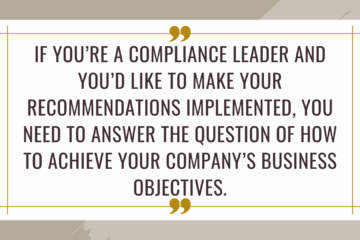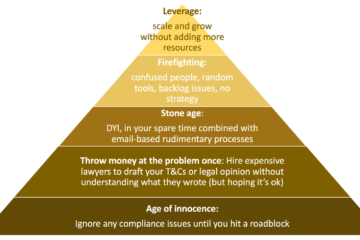The Difference Between Non-Compete and Conflict of Interest
I am often asked about non-compete contractual provisions when it comes to hiring employees from competitors as well as how to prevent your employees from going to your competition. Obviously, almost everyone wants to steal talent from others and nobody likes when it happens to you, right?

To be very honest, I am yet to see an employment or services contract with fully enforceable non-compete provisions. I have personally gone to work from Amazon to PayPal to several PayPal clients, and I have seen literally hundreds of rotations and mutual circulation cases across the payments and financial industry.
Is it legal? – Yes, it is. Why? Because to really enforce non-compete provisions in most countries, a company must demonstrate that it suffered specific and quantifiable damage. It might be possible to argue such a case when an account representative quits or a doctor or a lawyer leave their practice and take specific clients with them; But in most cases, there is no specific and quantifiable damage (e.g. loss of specific revenue stream). Quite the opposite, financial institutions are required by law to have contingency plans and succession plans for all their key employees. Many companies implement non-compete provisions in their contracts as a precaution (aka “just in case”), but in reality, there is very little they can do if someone decides to leave and join the competition. My personal opinion – just let it go and move on. 🤷🏻
Non-compete provisions are often confused with the conflict of interest provisions. I have seen many Codes of Conduct, where both terms were used interchangeably, and I don’t feel it was a good practice.
A conflict of interest is a situation in which your employee or a contractor (we are still talking about employment or similar “person-vs-company” relationship) cannot perform impartially their duties or provide objective and unbiased professional advice because of their ability to do a good job is compromised. A classical conflict of interest may exist when your employees are using your platform as customers while having insider information about pricing trends, or other users’ transactions, or new products that will be launched soon. Another example of a conflict of interest may exist when someone is doing business with their family members or romantic partners.
When your contractors or part-time employees are providing services to another financial institution during the same period of time – this is not necessarily a conflict of interest for them. In fact, you cannot really prevent your digital marketer or your lawyer or your accounting service provider, or even your recruiter from serving others in your industry, as long as they keep everyone’s information private and confidential. 🤐
In certain cases, a conflict of interest is indeed possible – for example, when someone is serving clients that are engaged in legal disputes, litigations, or M&A with each other. Essentially, those are cases where doing a good job for one client can directly harm another client. Obviously, any situation of a potential conflict of interest must be promptly communicated to the legal and compliance teams of both sides and clarified as soon as possible.
Here is my post about it and why I believe that most non-compete provisions are not enforceable, as well as some general ideas on how to align your code of conduct and define conflict of interests.
Make it a great day today! 🤩


